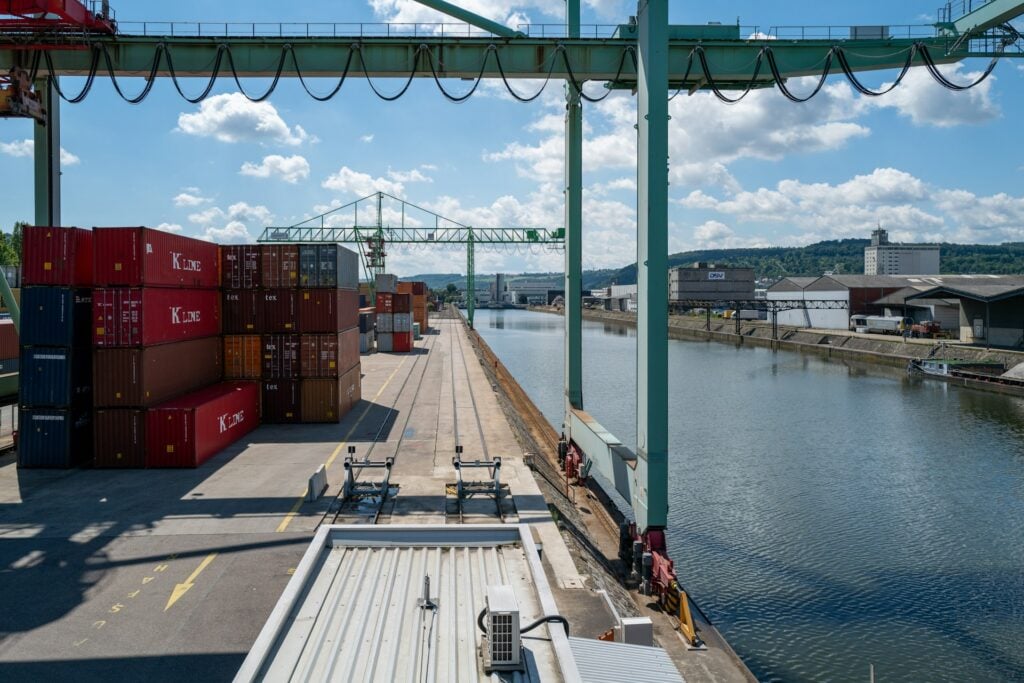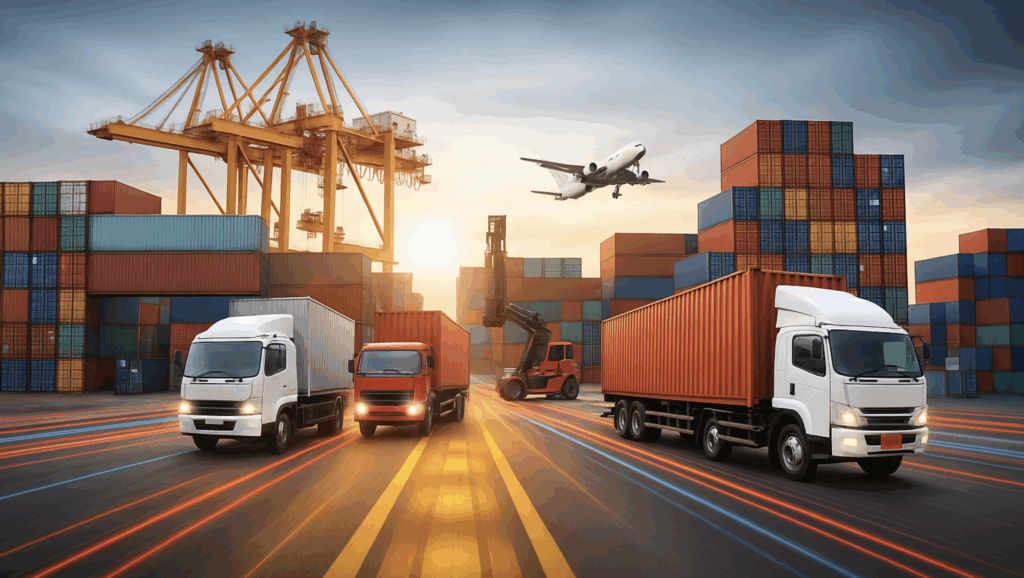Dockflow recently hosted its Emissions Reporting event, gathering industry leaders to discuss the future of emissions tracking. The event also focused on regulatory compliance and sustainable practices in maritime logistics. Attendees gained valuable insights on navigating EU regulations, enhancing route efficiency, and creating transparent carbon offset solutions.
The event centered around Dockflow’s new AI-powered CO2 emissions tracking engine. Here, we recap the key discussions and actionable takeaways from our expert speakers.
Emissions Reporting event key speakers and insights
1. Pauline Van Ostaeyen (Dockflow Co-founder): Enabling Sustainable Logistics

Pauline shared Dockflow’s vision of empowering logistics teams to operate more sustainably and efficiently. She emphasized that sustainability has always been at Dockflow’s core, originating from early projects to reduce food waste.
Today, Dockflow is pushing forward with an emissions tracking feature tailored to meet user demands for more transparent and eco-conscious logistics.
2. Quentin Donnadille (CLECAT): Navigating EU Regulations
Representing CLECAT, the European Association for Forwarding, Transport, Logistics, and Customs Services, Quentin provided a comprehensive overview of the EU’s sustainability regulations, including CSRD (Corporate Sustainability Reporting Directive) and ETS (Emissions Trading System).
He emphasized the importance of harmonizing emissions reporting standards across industries to foster a decarbonized, competitive supply chain.
3. Wouter Lox (Sustinera): Aligning with ESG Principles
Wouter highlighted the significance of aligning logistics operations with Environmental, Social, and Governance (ESG) principles to achieve CSRD compliance.
He explained the double materiality assessment to attendees. This approach helps companies understand the external environmental impact of their operations. It also highlights the internal risks posed by environmental factors.
4. Michiel Valee (Dockflow Co-founder): Introducing AI-Powered CO2 Tracking

Michiel introduced Dockflow’s AI-powered CO2 tracking engine. The latter has been developed in response to customer demand for accurate emissions tracking.
This tool analyzes maritime routes to help users choose eco-friendly options. It offers multiple calculation methods for accredited and real-time emissions reporting. Accessible through Dockflow’s Tradeflow dashboard, the engine empowers logistics teams to make data-driven choices for greener shipping.
I’ll ADD A CTA BUTTON HERE TO LEARN MORE ABOUT THE TOOL VIA A DEMO
5. Filip Marien (mintBlue): Compliant Reporting with Smart Contracts
Filip presented mintBlue’s blockchain-powered solutions for secure, compliant data sharing and reporting. By leveraging smart contracts, mintBlue allows logistics companies to manage data access granularly. This ensures transparent and secure reporting that meets rigorous compliance standards.
6. Marte Greefs (Go Forest & Go Ocean): Transparent and Impactful Carbon Offsetting
Marte closed out the presentations by showcasing Go Forest and Go Ocean’s nature restoration projects. These projects enable companies to offset carbon emissions through reforestation and ocean restoration. Digital tools provide long-term transparency and traceability for these efforts.
Marte emphasized the importance of transparent reporting and consistent communication for effective carbon offsetting.
Key Takeaways from the Emissions Reporting Event
If you missed the Emissions Reporting event –or are just curious to learn more–, you can click here and watch it for free!
However, below are some of the primary insights shared by the speakers:
- Regulatory Compliance: With rising demands from the EU’s CSRD and ETS regulations, logistics providers must prioritize accurate emissions tracking and reporting to avoid penalties and gain a competitive edge.
- AI-Driven CO2 Tracking: Dockflow’s new AI-powered CO2 tracking engine helps logistics teams select sustainable routes, calculate real-time emissions, and integrate reporting directly within their Tradeflow dashboard.
- Blockchain for Transparency: mintBlue’s smart contracts and blockchain solutions provide a secure, compliant way to share and audit emissions data, ensuring regulatory adherence and building trust with stakeholders.
- Carbon Offset Solutions with Go Forest & Go Ocean: Carbon offsetting is effective when it is transparent and trackable. Go Forest & Go Ocean offer accessible tools that allow businesses to see the impact of their contributions over time.
Final thoughts on the Emissions Reporting event
Dockflow’s Emissions Reporting event provided a valuable platform for logistics leaders to explore sustainable strategies and understand the regulatory landscape. As the industry faces increasing demands for transparency and environmental responsibility, tools like Dockflow’s CO2 tracking engine are paving the way for a greener, more efficient supply chain.




